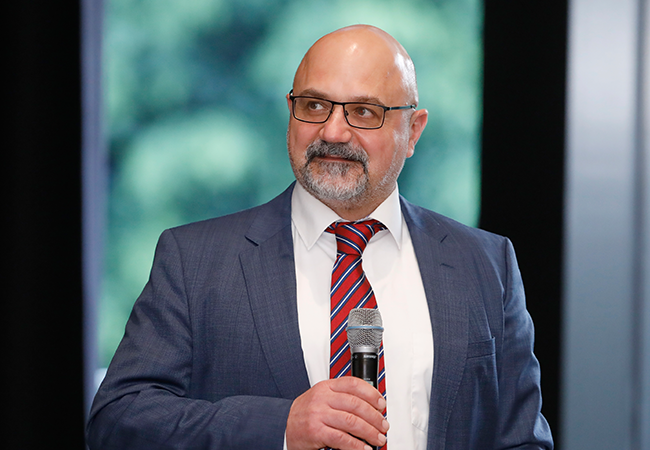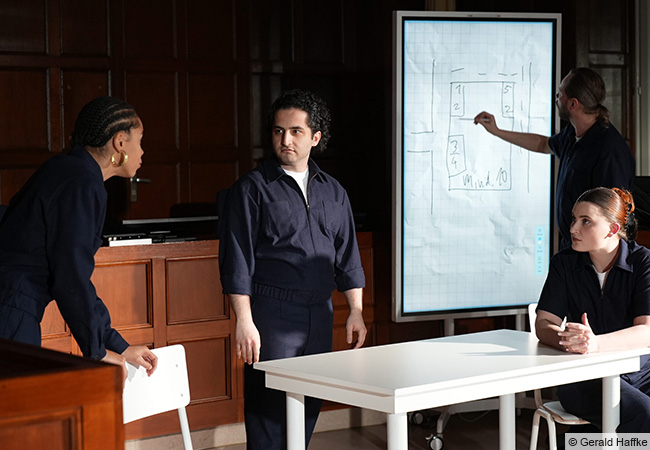Renowned global scientists have come together at the United Nations General Assembly’s Science Summit in New York City to drive forward the Sustainable Development Goals (SDGs). In his talk, Prof. Luciano Rezzolla of Goethe University Frankfurt will focus on the vital role international collaboration plays in scientific advancement.

High-profile scientists from around the globe are convening at the Science Summit around the United Nations General Assembly in New York City for the ninth time today to present and discuss contributions to achieving the Sustainable Development Goals (SDGs). This year, Professor Luciano Rezzolla from Goethe University Frankfurt’s Institute for Theoretical Physics is among them.
„It is a great honor and privilege to share my work in this context,“ says Rezzolla, who has been invited to offer insights into the creation of the first-ever image of a black hole and the first image of the black hole located at the center of our Milky Way. Images of these supermassive black holes, known as M87* and Sgr A*, are exciting not only to the astrophysical community, but have also generated significant media attention in recent years. What made these groundbreaking images possible was the global „Event Horizon Telescope“ collaboration, which connects radio telescopes worldwide into a virtual telescope, the sheer size of which can be compared to that of Earth, and as part of which participating scientists and institutions process collected data, and conduct intricate theoretical calculations.
Establishing such international scientific collaborations is also a declared goal of the Science Summit, which aims to bring the realization of the SDGs closer – a goal that is also reflected in the title of the session that will feature Professor Rezzolla as the keynote speaker: „Expanding Scientific Horizons through International Collaboration and Networking.“ Emphasizing the importance of interdisciplinary cooperation, he says: „Unlike a century ago, many scientific breakthroughs today are made possible only through close and interdisciplinary collaboration among countless scientists worldwide. The Event Horizon Telescope Collaboration brought together more than 300 researchers from 80 different institutions and this has ultimately allowed what was till then thought to be impossible: take a photo of a black hole.“
Interdisciplinary collaboration continues to play a central role in Rezzolla’s daily research activities. He is the spokesperson of the ELEMENTS cluster project, which brings together more than 100 astrophysicists and nuclear physicists, who work collaboratively and employ diverse methods to investigate how heavy elements originated in the universe.
The 78th session of the United Nations General Assembly opened on September 5, 2023. Held concurrently from September 12-29, the 9th Science Summit brings together numerous stakeholders from the fields of science and politics to discuss the contributions of science to the implementation of the SDGs. The meeting also will provide input for the United Nations Summit of the Future, which will take place in September 2024.
Virtual participation in the 9th UN Science Summit is free of charge. Professor Luciano Rezzolla’s talk will be broadcast on September 15, 2023, at 2:45 p.m. CEST.
For further information, please visit https://sciencesummitunga.com.







